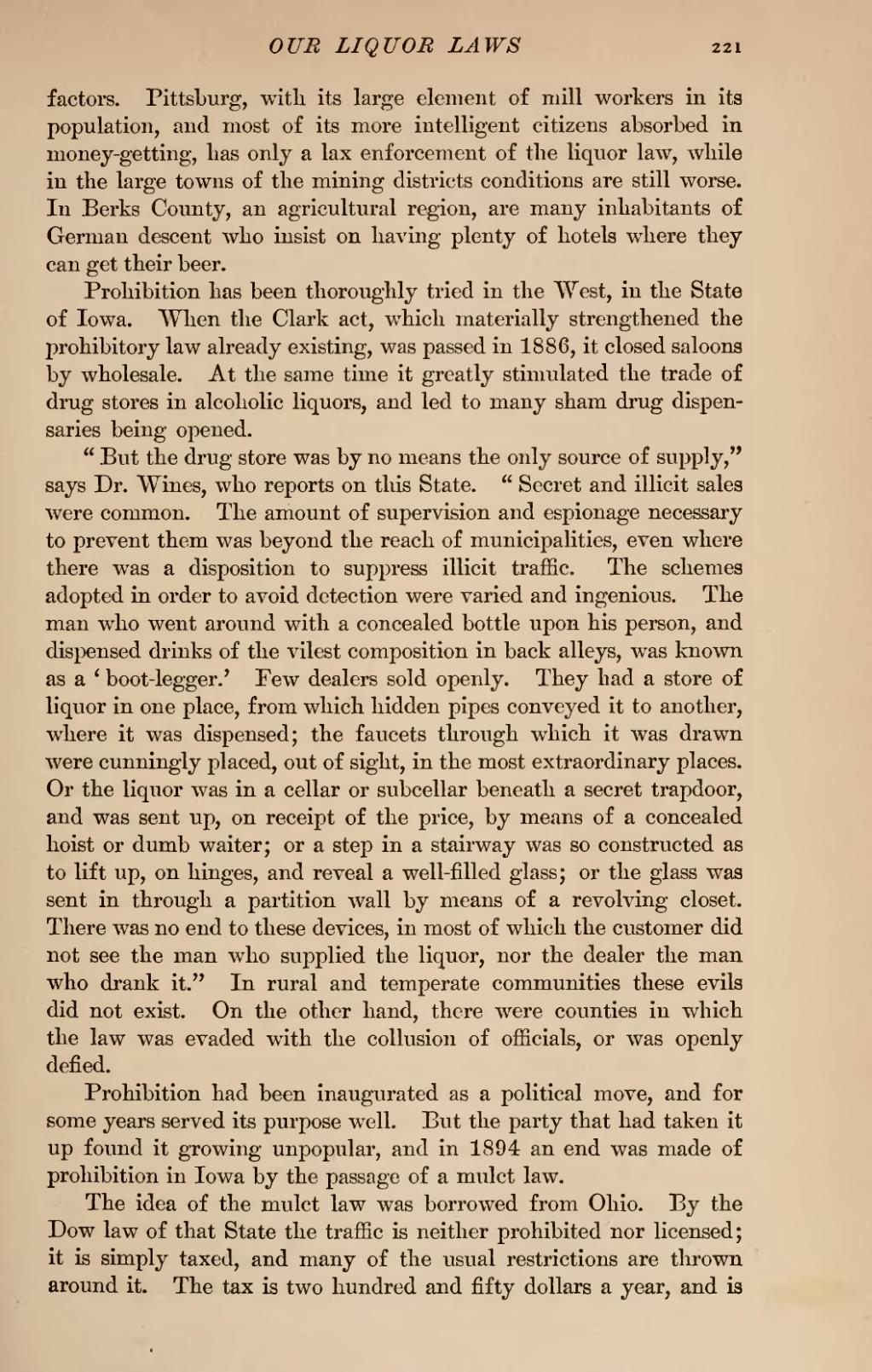factors. Pittsburg, with its large element of mill workers in its population, and most of its more intelligent citizens absorbed in money-getting, has only a lax enforcement of the liquor law, while in the large towns of the mining districts conditions are still worse.In Berks County, an agricultural region, are many inhabitants of German descent who insist on having plenty of hotels where they can get their beer.
Prohibition has been thoroughly tried in the West, in the State of Iowa. When the Clark act, which materially strengthened the prohibitory law already existing, was passed in 1886, it closed saloons by wholesale. At the same time it greatly stimulated the trade of drug stores in alcoholic liquors, and led to many sham drug dispensaries being opened.
"But the drug store was by no means the only source of supply," says Dr. Wines, who reports on this State. "Secret and illicit sales were common. The amount of supervision and espionage necessary to prevent them was beyond the reach of municipalities, even where there was a disposition to suppress illicit traffic. The schemes adopted in order to avoid detection were varied and ingenious. The man who went around with a concealed bottle upon his person, and dispensed drinks of the vilest composition in back alleys, was known as a ‘boot-legger.’ Few dealers sold openly. They had a store of liquor in one place, from which hidden pipes conveyed it to another, where it was dispensed; the faucets through which it was drawn were cunningly placed, out of sight, in the most extraordinary places. Or the liquor was in a cellar or subcellar beneath a secret trapdoor, and was sent up, on receipt of the price, by means of a concealed hoist or dumb waiter; or a step in a stairway was so constructed as to lift up, on hinges, and reveal a well-filled glass; or the glass was sent in through a partition wall by means of a revolving closet. There was no end to these devices, in most of which the customer did not see the man who supplied the liquor, nor the dealer the man who drank it." In rural and temperate communities these evils did not exist. On the other hand, there were counties in which the law was evaded with the collusion of officials, or was openly defied.
Prohibition had been inaugurated as a political move, and for some years served its purpose well. But the party that had taken it up found it growing unpopular, and in 1894 an end was made of prohibition in Iowa by the passage of a mulct law.
The idea of the mulct law was borrowed from Ohio. By the Dow law of that State the traffic is neither prohibited nor licensed; it is simply taxed, and many of the usual restrictions are thrown around it. The tax is two hundred and fifty dollars a year, and is
